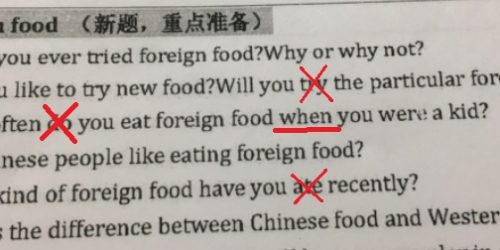Why should learners stick to official lists of practice questions when it comes to Part I?
First of all, because there are often grammar (wrong tense or subject-verb agreement errors), distracting non-standard lexis or spelling errors in internet lists, which can be confusing and lead to an incorrect understanding of the question. Part I questions are on familiar topics and candidates shouldn’t need to pause to understand the question. Grammatically-inaccurate questions will cause candidates to pause, which takes up valuable time.
Secondly, the pace of Part 1 is brisk and the questions are short, and formulated to be easily understood. When cheat-sheets of questions from the memories of recent candidates are created, the questions reported are often written in a way that is longer or more complicated than what the question was, which, again, takes up valuable time in the 4 to 5 minutes allotted to Part 1.
Since the chances of a strong exam performance increase with rehearsal of thoughtfully-prepared responses full of complex structures and more precise lexis, why not start with accurately-formulated practice questions?
